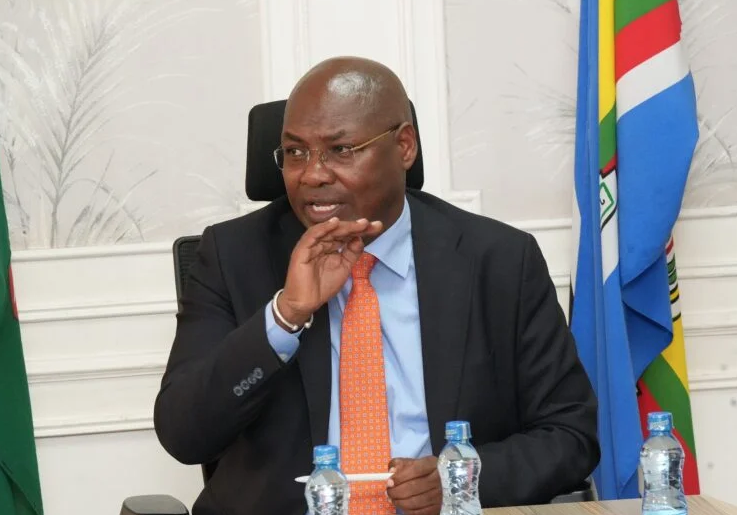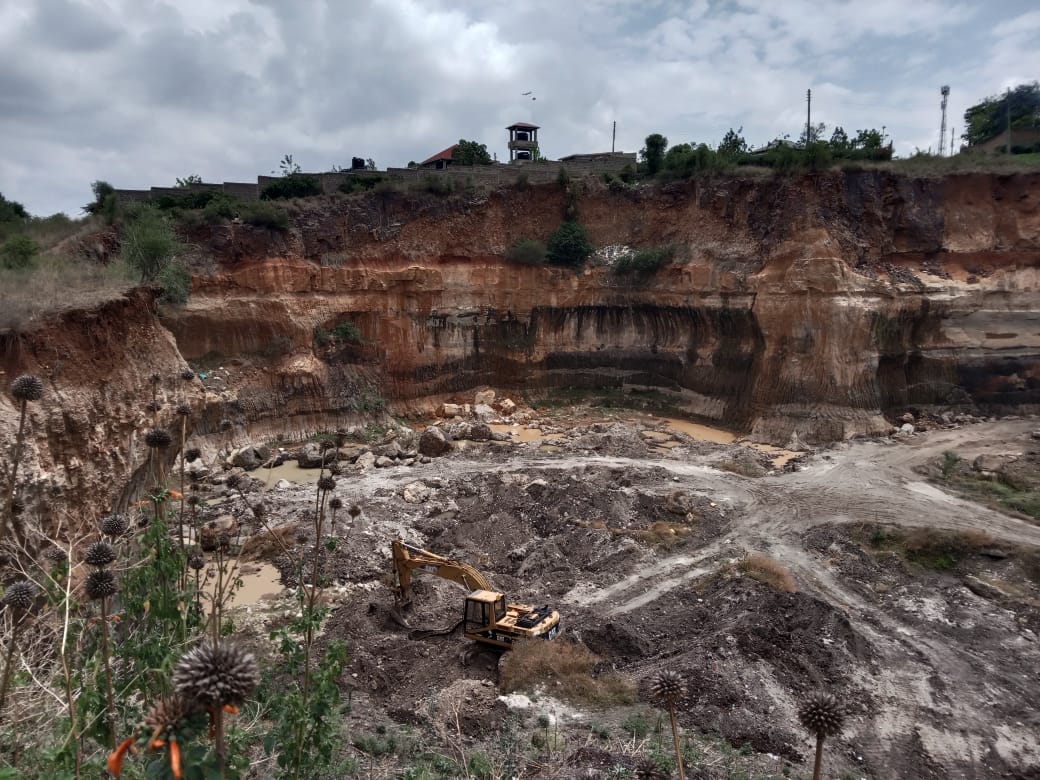
A scaled-up crackdown on illegal mining ordered by Mining, Blue Economy and Maritime Affairs Cabinet Secretary Hassan Ali Joho over the weekend nabbed nine foreigners and two locals in Migori and Siaya counties.
Two of the foreigners were arrested conducting illegal mining activities in the Yamo-Oloko area of Bondo Sub-County by a team of officers drawn from Mining Police Unit and the DCI.
Three sealed cartons of gelignite explosives weighing 25 kilogrammes each, 72 individual explosive charges, and 137 pieces of shock tubes were confiscated.
The case of the two foreigners will come up for mention on December 22 in Siaya.
In Migori County, the officers conducted a raid on another company where seven foreigners and two locals were engaging in mining activities without a valid license, contrary to section 202(1) of the Mining Act cap 306.
The seven foreigners have since been deported, while legal proceedings have been instituted against the two locals, who are out on bond.
 One of the sites where foreigners were arrested conducting illegal mining activities in Migori/HANDOUT
One of the sites where foreigners were arrested conducting illegal mining activities in Migori/HANDOUTSpeaking following the incident, Mining Principal Secretary Harry Kimtai warned that the government will not relent in its enhanced crackdown on illegal mining.
“The gloves are off. We’re taking decisive action against illegal mining and we won’t stop until the law is upheld.”
“No individual or organisation will be above the law in our fight against illegal mining. Anyone found engaging in illicit mining activities will face the full force of the law, regardless of their status or influence,” Kimtai said.
The Principal Secretary emphasised that mining is not a criminal activity but it must be conducted lawfully with the requisite license or permit to ensure compliance with regulatory standards.
He added that County Mining Officers have been deployed across the country to ensure mining activities are streamlined and the sector plays its rightful role in the country’s economic growth.
Illegal mining in Kenya costs the country billions of shillings in lost government revenue and leads to extensive, severe environmental and social damage. The costs are multi-faceted, impacting the economy, environment, human health, and social stability.
Illegal miners often export raw ores as simple sand, which are then analyzed and processed in foreign countries. This results in significant undervaluation, with the government receiving only a fraction of the actual worth in royalties.
Brokers and cartels exploit local artisanal miners, who may lose up to 40 per cent of their gold's value due to unfair pricing.
The prevalence of illegal operations, coupled with an unpredictable regulatory environment and lack of investment in exploration, dampens the growth of the formal mining sector, which currently contributes a low percentage to the national GDP.













